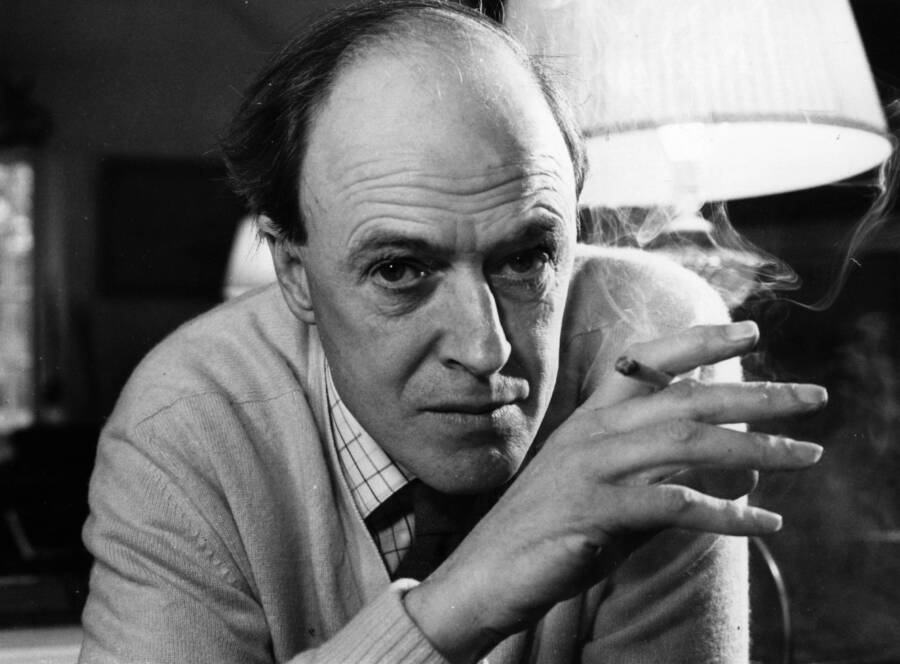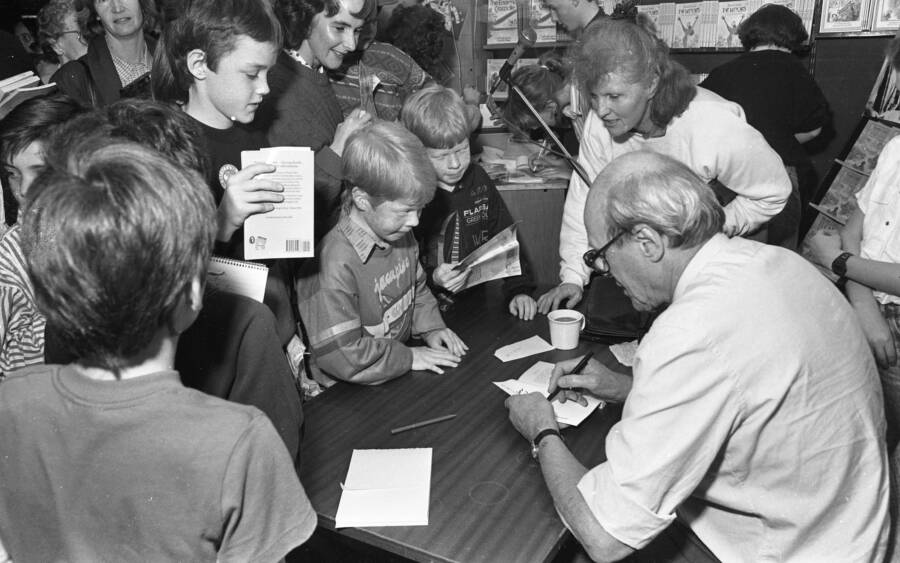The new versions of Dahl's books will remove words like "fat" and "ugly" to make them more acceptable to "modern" readers.

Matthew Horwood/Getty ImagesA child reading a Roald Dahl book.
In Roald Dahl’s book James and the Giant Peach (1961), one character is described as “terrifically fat” and “tremendously flabby.” But this description won’t appear in new editions of Dahl’s book, as the author’s works are being rewritten to remove potentially offensive language.
Puffin Books and the Roald Dahl Story Company have partnered with an organization called Inclusive Minds to review the author’s texts and remove words that might rankle modern readers. For example, the character of Augustus Gloop in Charlie and the Chocolate Factory (1964) will no longer be described as “enormously fat” but just “enormous,” according to the Associated Press.
Other changes include removing the word “black” to describe frightening tractors in The Fabulous Mr. Fox (1970) and leaving them as “murderous, brutal-looking monsters,” calling Oompa Loompas “small people” instead of “small men,” and including an extra line about the baldness of witches in The Witches (1983) that explains, “There are plenty of other reasons why women might wear wigs and there is certainly nothing wrong with that.”
Dahl’s estate has defended the changes as par for the course. “When publishing new print runs of books written years ago, it’s not unusual to review the language used alongside updating other details, including a book’s cover and page layout,” the company stated, per the Associated Press.

Ronald Dumont/Daily Express/Getty ImagesRoald Dahl has a complicated legacy, but many believe that his written words should be preserved.
But the changes have outraged many, including Dahl’s fellow writers, who claim that the efforts to rewrite Dahl’s books smack of censorship.
“There are millions, probably, of [Dahl’s] books in secondhand editions in school libraries and classrooms,” His Dark Materials writer Philip Pullman said in an interview with BBC. “What are you going to do about them? All those words are still there. You going to round up all the books and cross them out with a big black pen?”
Other critics include the British Prime Minister, Rishi Sunak, and the famously hounded writer Salman Rushdie, whose book The Satanic Verses (1988) led Iran’s Grand Ayatollah Ruhollah Khomeini to call for his death.
According to The New York Times, a spokesperson for Sunak stated: “When it comes to our rich and varied literary heritage, the prime minister agrees with the BFG that we shouldn’t gobblefunk around with words.” And Rushdie wrote on Twitter: “Roald Dahl was no angel but this is absurd censorship. Puffin Books and the Dahl estate should be ashamed.”
Though Inclusive Minds declined to comment on the rewrites, the company released a statement noting that it did not “write, edit or rewrite texts,” and only sought to “provide valuable input when it comes to reviewing language that can be damaging and perpetuate harmful stereotypes.”

Independent News and Media/Getty ImagesRoald Dahl signing books in 1988.
It’s not the first time that Dahl’s name has been associated with controversy. The writer — who died in 1990 — was infamously anti-Semitic during his life, and his family has since apologized for his hurtful remarks.
But the books of Roald Dahl, which have sold more than 300 million copies and have been translated into 68 languages, according to the Associated Press, have long delighted young readers. Dahl’s dark sense of humor and active imagination enchanted children, and Dahl noted during his life that it was often adults who took issue with his stories.
“I never get any protests from children,” he once said, according to The New York Times. “All you get are giggles of mirth and squirms of delight. I know what children like.”
Indeed, some believe that applying an adult’s sensibility to children’s stories like Dahl’s is nothing less than censorship. PEN America, an organization of thousands of writers that advocates for freedom of expression, declared “alarm” at the rewrites of Dahl’s work.
On Twitter, the organization’s chief executive, Suzanne Nossel, wrote: “If we start down the path of trying to correct for perceived slights instead of allowing readers to receive and react to books as written, we risk distorting the work of great authors and clouding the essential lens that literature offers on society.”
After reading about the rewriting of Roald Dahl’s classic books, discover the incredible, little-known story of Roald Dahl’s life. Or, see how many children’s book authors had a surprising dark side.





